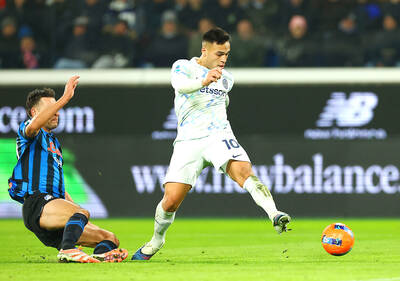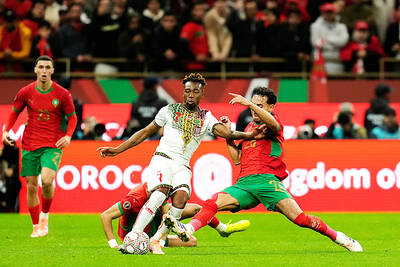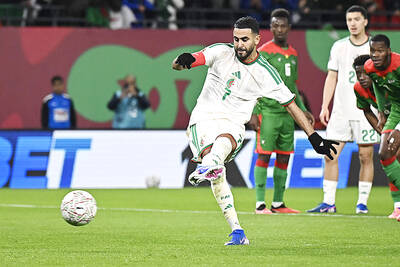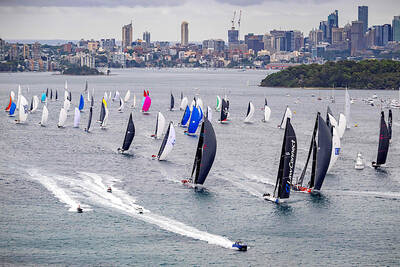In a study by the US-based Reputation Institute last year, Roger Federer was named second on a list of the world’s most respected people. Behind him was Bill Gates (third), ahead of him only Nelson Mandela. It is fair to say the Swiss tennis star has a reputation to maintain.
With that in mind, there is a lot riding on the Roger Federer Foundation (RFF), which partners local non-governmental organizations to support education projects for children living in poverty.
Many find it unthinkable that a high-profile sportsman like Federer would pursue such a project for reasons other than PR, or to maximize sponsorship returns. Yet, as the world’s fifth highest paid athlete he seems beyond such concerns. If anything, says the foundation’s CEO, Janine Handel, Federer’s altruism potentially jeopardizes the very thing that puts him in a position to make a difference in the first place — his standing.
“If you do charity and you’re a prominent person, it’s very important you do it right,” she said. “It’s a reputational risk you are taking.”
Handel, in London for a debate about whether tennis does enough to help society, insisted what the world needs is not more money but better invested money.
“Philanthropy is not just about money, it’s about quality, how you invest in social issues, the impact you have in the field,” she said.
For 54,000 children in Malawi who will benefit from an early education initiative run by the RFF, that is good news. The project, which began in 2010 in partnership with Credit Suisse and is being implemented in conjunction with ActionAid Malawi, will run for a decade. Its aim is to harness the potential of 80 childcare centers in six districts, where almost 250,000 children aged six to 11 fail to enrol in school.
Personal experience tends to shape the philanthropic activities of tennis players — think Nevada-born Andre Agassi’s education foundation in Las Vegas, or the Guga Kuerten Institute, which works with disadvantaged children in the former world No. 1’s native Brazil — but a packed year-round schedule leaves few opportunities to visit developing countries. It does not help that so few tournaments are staged in poor countries.
“It comes down to what’s viable commercially, what fits in the calendar, and what the appetite for tennis is in a given region,” said Justin Gimelstob, a player representative on the ATP World Tour directors’ board, who described a visit to the Arthur Ashe Tennis Centre in Soweto as “heartbreaking and inspiring.”
“How do you tie the facility in Soweto to the opulence of the US Open? How do you manage those opposite forces?” he asked.
In the absence of easy answers, the ATP is focusing on supporting the efforts of individual players, which only adds to the importance of organizations like the RFF.

STILL IN THE HUNT: Rasmus Hojlund took his goal tally for SSC Napoli to nine as the champions cruised to a win at US Cremonese and stayed two points behind the leaders Inter on Sunday stayed at the Serie A summit after beating Atalanta BC 1-0 to maintain their slender lead over local rivals AC Milan. Lautaro Martinez netted the only goal of the game in Bergamo for Inter, who lead Milan, 3-0 winners against Hellas Verona thanks to Christoper Nkunku’s first Serie A goals, by a single point at the top of the division. The Argentina striker has scored in four consecutive league matches to end what has been a tricky year in positive style. “I ended last season in a lot of pain... I kept going during the Club World Cup and international

Hosts Morocco on Friday were held to a 1-1 draw by Mali at the Africa Cup of Nations, ending their world record run of wins and leaving them still to make sure of progress to the next stage. Midfielder Brahim Diaz tucked away a penalty in stoppage-time at the end of the first half, but Mali equalized from the spot midway through the second half through Lassine Sinayoko. Both penalties were awarded after video reviews in a tempestuous clash at the end of a busy day of action at the tournament. Morocco were atop the Group A standings with four points, while Zambia,

Algeria on Sunday became the third country after Egypt and Nigeria to qualify for the knockout stage of the Africa Cup of Nations by edging Burkina Faso 1-0 in Rabat through a Riyad Mahrez penalty. Defending champions Ivory Coast failed to join the trio after drawing 1-1 with Cameroon in a lively showdown in Marrakesh. Elsewhere, Mozambique ended a 39-match wait for a first victory by beating Gabon 3-2, while Sudan got back into contention for a last-16 slot by beating Equatorial Guinea 1-0 in Casablanca. Captain Mahrez converted from the penalty spot midway through the first half and Algeria then held on

Supermaxis Master Lock Comanche and defending champions LawConnect yesterday continued their close duel on the second day of the 80th running of the Sydney to Hobart yacht race. Just over 27 hours into the race that began on Friday in Sydney Harbour and is to end on the island state of Tasmania, Comanche had a 4 nautical mile (7.4km) lead over LawConnect. LawConnect was forced to contend with a broken mainsheet and halyard overnight, but fixed both issues and remained in pursuit of Comanche, which is skippered by Matt Allen and James Mayo. “We had a few things slow us down and Comanche’s